Home » Jazz Articles » Interview » Laura Jurd: Getting Elemental
Laura Jurd: Getting Elemental
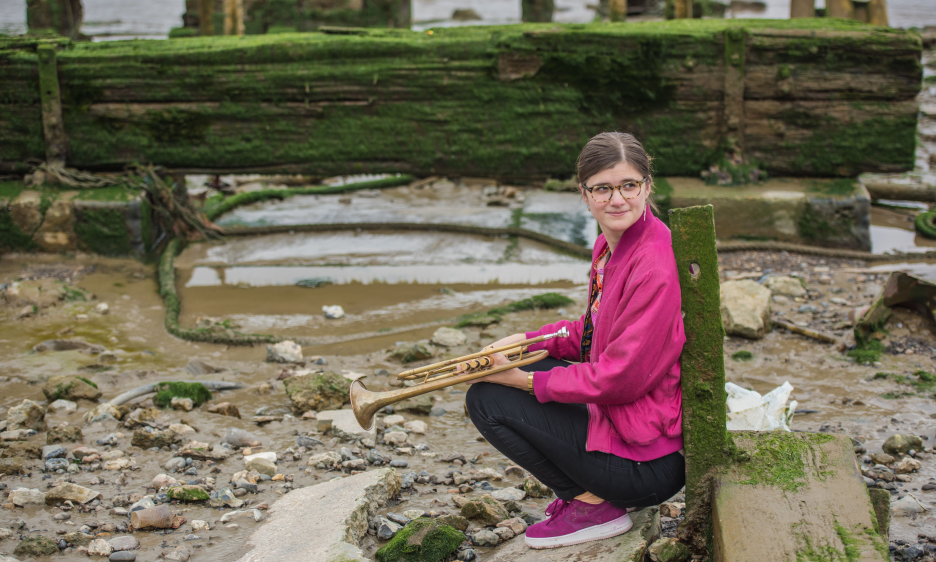
My biggest musical hero is Igor Stravinsky. The take away is his harmony. It's so characterful. There’s something about it which is instinctive and doesn’t follow anyone’s rules but his own. It’s like he’s plonked his hand on the piano and found a chunk of notes which just feel really good. I love that.
—Laura Jurd
To The Earth is Dinosaur's third album. It was preceded by Together, As One (Edition, 2016) and Wonder Trail (Edition, 2018), both plugged-in and extensively through-composed affairs. To The Earth is something of a departure in that it is an acoustic set, simpler in structure than its precedessors, and returns to the fundamental jazz vérité of well-crafted tunes arranged as vehicles for improvisation. Five of the seven tunes are Jurd originals, one is a collective composition and the seventh is a cover of Billy Strayhorn's "Absinthe." The fact that Jurd's pieces are as beautiful as Strayhorn's is testament enough.
Dinosaur is very much Jurd's band but it co-exists as a hard-wired interactive lineup, with Jurd's compositions informed by the musical personalities of all four players, as is the band's sound. Galvin, who like Jurd is involved in contemporary classical music as well as jazz, is himself a rising star on the London scene. So too are Chaplin and Dick, who also plays in the outstanding band led by Dinosaur labelmate, guitarist Rob Luft (whose Life Is The Dancer is also surely destined to be another of the most outstanding London jazz albums of 2020).
In this interview, Jurd talks about her path to becoming a professional musician and composer, a trajectory blessed by inspirational teachers, about Dinosaur's new album and about her own commitment to teaching. She concludes by describing six of the most important albums / compositions which have shaped her development (six being a more or less arbitrary number imposed on her by All About Jazz).
All About Jazz: What was the first jazz record you heard?
Laura Jurd: I can't remember the first one I heard, but the first one I bought was Miles Davis' Kind of Blue, not knowing how iconic it was. I was about 12 years old, I'd got a bit of pocket money or Christmas money, and I'd heard of Miles Davis, saw the record and bought it. It wasn't until a lot later that I really appreciated that album for what it was. There were other Miles albums that I liked more. Milestones, Miles Smiles, Bitches Brew, Miles Ahead. But as I got older I discovered the magic of Kind Of Blue.
AAJ: How had you come across jazz?
LJ: I've been incredibly lucky with my music teachers over the years. When I was five I had a piano teacher named Pam Edwards. She realised early on that I loved to improvise, so she steered me towards jazz. She actually carried on teaching me until I was eighteen. I was so lucky to have her, she not only got me started in an amazing way, she nurtured my whole musical growth.
AAJ: When did you take up trumpet?
LJ: I started quite young, at primary school. I suppose I was about eight. There was a peripatetic music teacher who came in and who just happened to be offering brass lessons. I fancied doing it but in order to participate you had to have an instrument, which is an investment for a family. But I was lucky in that I had an uncle who used to play trumpet in the army or something, and he had one on the top of a cupboard, gathering dust. So I had access to an instrument without my parents having to buy me one before I'd made a commitment to it, which was cool. Because of that I was able to persuade them to pay for the brass lessons. And then I just got really into the trumpet. So I never actually set out thinking it was trumpet I wanted to play. I mean, my uncle might have had a sax on the top of his cupboard.
AAJ: Before you went to Trinity Laban, did you have any other important music teachers?
LJ: The one I'd most like to mention, because he was such a huge influence on my musical development, was a teacher at my sixth form college, Alton College in Hampshire, near where I grew up. I went there when I was about sixteen and was there for two years, before going on to Trinity. The music department was led by Martin Read, an amazing composer, who sadly has passed away now. I learnt so much from him. He was my first composition teacher. He had such a broad knowledge of music and was into so many different types of music. Any question I might ask he had some sort of route for me to explore and discover other stuff. His enthusiasm for all different types of music from different parts of the world was so infectious. That was an extremely important, formative couple of years.
AAJ: Dinosaur actually started at Trinity in 2010, didn't it?
LJ: Yes. Elliot and I were in the same year and Conor and Corrie were in the year below. We began playing together as the Laura Jurd Quartet and when we released our first album we changed it to Dinosaur. There was no reason for the name really other than for some reason I'd always imagined that one day I would have a band called Dinosaur. I thought it would be a cool band name.
AAJ: And the four of you have been together since 2010.
LJ: I've been very lucky. And we've learnt so much from one another. Elliot, Conor and Corrie are up there among my greatest influences. They've facilitated how I play and how I think about music and everything else actually. So we're lucky that our very different individual personalities, on and off stage, kind of work together. We're all quite different people but even from a social point of view it feels good. It just works. It's quite easy.
AAJ: Do you consider yourself as being primarily a performer or a composer?
LJ: It's pretty seamless really. Writing for Dinosaur is different from writing for a classical ensemble, where my role is just that of a composer. One of the big reasons for that is the nature of jazz. Jazz musicians bring so much of themselves to the music that you, as a composer, have to leave space in the writing for that to happen. More often than not, jazz musicians are writing music for people they know. So I'm not writing for piano, bass and drums, I'm writing for Elliot, Conor and Corrie. I'm still the composer, but it's like they're sort of helping me write the tunes, in my imagination. Because I can completely hear how they would make something sound. An idea might come to me from the way they improvise or the way they feel a groove or their sound. It's like, you, the composer, is still taking the credit, but the result is not all down to you.
AAJ: Did you study trumpet and composition at Trinity?
LJ: My degree was in Performance, playing jazz trumpet. But whilst I was there I kind of gatecrashed quite a few of the composition classes and I also had one to one lessons. Among the teachers in the jazz department were some I was highly interested in as composers—Chris Batchelor, who was my trumpet teacher for four years, and who massively shaped how I think about the trumpet and improvising, and Mark Lockheart and Liam Noble. Those three in particular. I also had some composition lessons with Errollyn Wallen, who is more in the classical sphere.
AAJ: Your first two Dinosaur albums were plugged in. What led you to go acoustic on To The Earth?
LJ: We'd been playing a lot of live gigs of the music off Wonder Trail, and we'd been playing it acoustically. We did the same tunes but with piano instead of keyboards and without the electronics, even though that wasn't how it was originally conceived. That sowed some seeds. We were getting more open and improvisatory with the material and we were enjoying it. And we'd never done an acoustic album. Conor for instance has always played electric bass but he is an amazing double bassist as well.
So I started to hear some music that was more typical jazz quartet—trumpet, piano, double bass, drums—and I got interested in writing tunes that were basically simple melodies which we could improvise on, over the harmonic sequences. It was fun for me to come up with simple tunes that could each sit on a side of A4 paper, because a lot of my music is through-composed with lots of stuff going on. It was really nice to just write some melodies. My process in doing that starts with bass lines and melodies and the harmony happens because of those things.
AAJ: There's one cover on the album, a lovely version of Billy Stayhorn's "Absinthe."
LJ: It's not something I would normally have considered doing, a version of someone else's tune. But I was so struck by how magical that tune was and I could hear a way that we could play it that wasn't too far away from the Duke Ellington version [on the 1963 Reprise album, Afro-Bossa]. The arrangement paid homage to that, but also allowed us do our own thing a little bit. The big thing with that track I think is the way Elliot plays. It would have been so easy to do an Ellington impression but we didn't want to do that. It's something we talked about loads when we were rehearsing. I was keen for Elliot to capture Ellington's essence, something about the rhythm or the sound, but with Elliot remaining Elliot within that.
AAJ: Alongside your bandleading and composing, you teach, too. Because you were so fortunate in your own teachers, did that make you want to give something back?
LJ: Yes, absolutely. I think I would always have done something artistic, but it might not have been in music. I am very aware of how much of a boost I got from my teachers, the good fortune I had stumbling across the particular individuals who taught me, and how much that helped accelerate my development and love for music. Because of that, I feel like it's almost a duty to teach others.
If I could pass on just ten per cent of the good fortune I had to just one student I would feel like that was a brilliant thing. Of all the students you teach, you're not necessarily going to have a life-changing impact on every one of them, but the possibility that just one thing you say, or one way of looking at something, or one piece of music you point someone in the direction of, the possibility that that could be completely life-changing, that is what makes me want to teach.
I'm very lucky from the financial point of view right now [May 2020] in that a lot of my teaching is continuing online. It means that some of the income loss from the lack of gigs is compensated for to some extent. I teach a lot of composition students. Teaching composition is the major strand of my teaching, not by design, it's just turned out that way. I've grown to love doing it. It's an interesting challenge. It's a different kind of thing to teaching trumpet. It's like, measuring a student's development is different. It's about helping your student become whatever they might like to be. Which is how my own teachers most helped me.
LAURA JURD'S SIX MUSICAL MILESTONES
It was really difficult coming up with just six albums or pieces of music that have been important to my development, as there have been many more than that. But it proved to be a useful exercise. Four of my choices are albums, and two are pieces of music rather than specific recordings.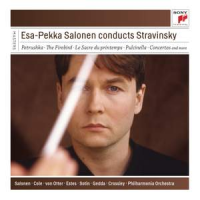 Igor Stravinsky
Igor Stravinsky Symphonies Of Wind Instruments
1920
It's the piece that is most important here, not this particular recording. My biggest musical hero is Igor Stravinsky and "Symphonies Of Wind Instruments" has got to be one of my desert island discs. The take away is his harmony. It's so characterful. There's something about it which is instinctive and doesn't follow anyone's rules but his own. It's almost like he's plonked his hand on the piano and found a chunk of notes which just feel really good. I love that. I discovered this piece on a budget-priced mega box-set of his complete works which I bought when I was at Alton College.
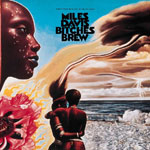 Miles Davis
Miles Davis Bitches Brew
Columbia, 1970
It was particularly cruel having to choose just one Miles Davis album. There are several other amazing albums I could have chosen, he made so many and of such variety. I was thinking about Live Evil as well but I chose Bitches Brew because it was the first one I heard from Miles' electric era. Hearing the trumpet in this groovy, expansive, lively space was a tremendously exciting experience. So was what Miles was going for, with everyone creating these improvisatory layers with very little instruction from him. The album has a free spirited, trusting energy. It is also quite messy, which I like because it feels so human.
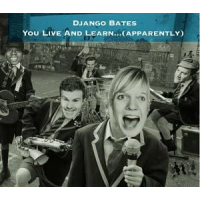 Django Bates
Django Bates You Live And Learn...(Apparently)
Lost Marble, 2004
At Alton College I got to know the music of Django Bates, Loose Tubes, Perfect Houseplants, lots of incredible British musicians who had come up in the 1980s. I'm a ridiculous fan of the whole school. I chose this album because it's such an amazing collection of tunes and also because it has a brightness and playfulness that I was immediately drawn to. Plus Django revealed to me just how much of a composer one can be in the context of a jazz ensemble. It was a wonderful experience to make To The Earth, with everything stripped right back. But it's also wonderful to work like Django, who gets everything he possibly can out of an idea and takes it on this incredible journey of complexity.
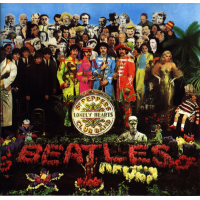 The Beatles
The Beatles Sgt. Pepper's Lonely Hearts Club Band
Parlophone, 1967
I was about sixteen when I first heard this. I was absorbing so much music thanks to Martin Read at Alton College. The album has amazing songwriting and brilliantly eclectic musical ideas. I was also captured by the lyrics, which were not about the usual go-to subjects. Another thing I love is that the album makes such sense as a complete entity, it's not just a collection of tracks. If I could make an album which was this kind of holistic piece of work, that would really be something. It's something to aim for anyway.
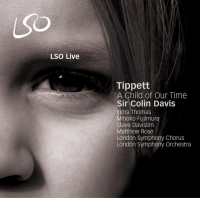 Michael Tippett
Michael Tippett A Child Of Our Time
1939-1941
As with the Stravinsky, it's the piece that is important here, rather than the particular recording. I first heard it when I was fifteen, playing in a local amateur orchestra. It is an extraordinary, big oratorio. For that group of musicians, who were all much older than me and who were usually playing Beethoven and Brahms and stuff, it was quite an ambitious choice. I was totally blown away by it, it was like I was having a transcendental experience. I remember thinking during rehearsals that nobody else looked like they were feeling anything similar. I couldn't believe that. Michael Tippet does these mindblowing arrangements of African American spirituals. To this day, whenever I hear it, it feels like the first time again.
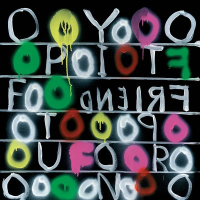 Deerhoof
Deerhoof Friend Opportunity
Trifekta, 2007
This is a more recent discovery. I probably came across it around 2015. Deerhoof is an American punk band, a bunch of composers. They do things that kind of give permission for a band to behave in excitingly unexpected ways. I'm taken by how the music is full of structural surprises which make total sense. The musical ingredients are actually really simple but somehow they make it come alive. There's a rawness about how it's played and with the sounds they use. And lyrically they write songs with very few words in them and with lots of repitition. It all works together brilliantly.
Photo: Monika S. Jakubowska
< Previous
Racing a Butterfly
Next >
On the Night Bus
Comments
Tags
Interviews
laura jurd
Chris May
Dinosaur
Elliot Galvin
Conor Chaplin
Corrie Dick
Billy Strayhorn
Rob Luft
Miles Davis
Chris Batchelor
Mark Lockheart
Liam Noble
Errollyn Wallen
duke ellington
Django Bates
Loose Tubes
Perfect Houseplants
Concerts
For the Love of Jazz
 All About Jazz has been a pillar of jazz since 1995, championing it as an art form and, more importantly, supporting the musicians who create it. Our enduring commitment has made "AAJ" one of the most culturally important websites of its kind, read by hundreds of thousands of fans, musicians and industry figures every month.
All About Jazz has been a pillar of jazz since 1995, championing it as an art form and, more importantly, supporting the musicians who create it. Our enduring commitment has made "AAJ" one of the most culturally important websites of its kind, read by hundreds of thousands of fans, musicians and industry figures every month.





















